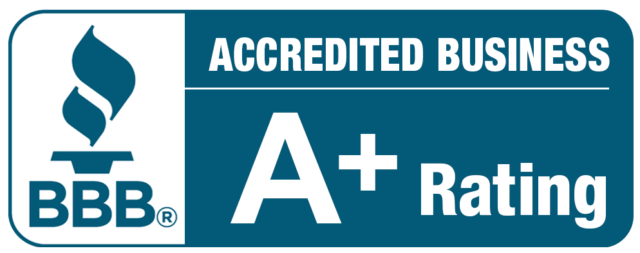Do you have a special needs child in your custody and wondering what are the best ways to take care of him or her are? Do you need help caring for a special needs child?
We understand how different and demanding it can be to have a special needs child in your care and so we have put together ways you can care for them effectively without the hassle and the place of home care agencies such as Good hands home care LLC in helping you manage for any of such special children.
But first, who is a special needs child?
Who is a Special Needs Child?
A special needs child is a child who requires additional assistance, support, or services due to physical, emotional, or cognitive challenges that may impact their daily life, learning, or behavior. These challenges may include but are not limited to:
- Developmental delays: difficulties in meeting developmental milestones such as sitting, crawling, walking, or talking.
- Learning disabilities: difficulties in processing information and acquiring new skills.
- Attention Deficit Hyperactivity Disorder (ADHD): difficulty with attention, hyperactivity, and impulsivity.
- Autism Spectrum Disorder (ASD): challenges with social interaction, communication, and repetitive behaviors.
- Physical disabilities: challenges with mobility or dexterity, such as cerebral palsy or muscular dystrophy.
- Sensory processing disorder: challenges with processing and responding to sensory input, such as touch, sound, or light.
How do I take care of a special needs child?
As factual as it can be, a special needs child requires more level of care and attention than a child who isn’t such. Special needs children require more attention, assistance, and the use of a variety of tools and software to assist them. Here are ways we have discovered that can aid you to care for a special needs child:
-
Establish a routine
Establishing a routine can help provide structure and predictability for children with special needs. A routine can include daily activities such as meals, therapy sessions, playtime, and bedtime. Creating a visual schedule can also help the child understand the routine and prepare for transitions. For example, a child with autism may benefit from a visual schedule that shows pictures of each activity in sequence.
-
Communicate clearly
Clear communication can help children with special needs understand what is expected of them and reduce frustration. Using simple language, visual aids, and gestures can make communication more effective. For example, a child with a hearing impairment may benefit from using sign language or written instructions to understand what is being said.
-
Create a sensory-friendly environment
Children with special needs may have unique sensory needs, and creating a sensory-friendly environment can help them feel more comfortable and regulated. This may include providing sensory toys, adjusting lighting or noise levels, or providing a sensory break area. For example, a child with sensory processing disorder may benefit from a quiet, dimly lit space with fidget toys and a weighted blanket.
-
Provide positive reinforcement
Positive reinforcement can help encourage positive behaviors and accomplishments. Praising the child for their efforts, rather than just their achievements, can help build self-esteem and motivation. For example, a child with ADHD may benefit from positive reinforcement for staying focused during a task, even if they do not complete it perfectly.
-
Foster independence
Encouraging independence can help children with special needs develop confidence and self-esteem. Providing opportunities for the child to make choices and complete tasks independently can help build their skills and independence. For example, a child with a physical disability may benefit from learning to dress in adaptive clothing.
-
Provide accommodations and modifications
Accommodations and modifications can help children with special needs access the same opportunities as their peers. These may include providing assistive technology, adjusting assignments, or modifying the environment. For example, a child with dyslexia may benefit from having audiobooks or speech-to-text software to help them access written material.
-
Connect with other parents and caregivers
Connecting with other parents and caregivers who understand the challenges of raising a special needs child can provide support and guidance. This may include joining a support group, attending parent-teacher conferences, or seeking advice from a healthcare professional. For example, a parent of a child with autism may benefit from joining a local autism support group to connect with other parents and learn from their experiences.
-
Prioritize self-care
Taking care of a child with special needs can be physically and emotionally exhausting, so it’s important to prioritize self-care. This may include taking breaks, practicing relaxation techniques, or seeking support from family and friends. For example, a parent of a child with cerebral palsy may benefit from taking a yoga class to relieve stress and improve their physical well-being.
-
Advocate for the child
Advocating for the child can help ensure that their needs are being met and their rights are being respected. This may involve working with healthcare providers, school administrators, or government agencies to secure appropriate services and accommodations. For example, a parent of a child with a learning disability may need to advocate for an Individualized Education Plan (IEP) to ensure that the child receives the appropriate educational support.
-
Celebrate the child’s strengths and achievements
Focusing on the child’s strengths and accomplishments can help build self-esteem and a positive self-image. Celebrating the child’s unique qualities and abilities can also help them feel valued and supported. For example, a child with Down syndrome may benefit from participating in a Special Olympics event where they can showcase their athletic abilities and receive recognition for their accomplishments.
Helpful tools that can help take care of special needs child
-
Visual schedules
Visual schedules can help children with special needs understand the routine and prepare for transitions. These schedules can be created using pictures, icons, or words, and can be displayed on a wall or in a binder.
-
Assistive technology
Assistive technology can help children with special needs access information and complete tasks more easily. This can include text-to-speech software, communication devices, or adaptive equipment like wheelchairs or hearing aids.
-
Sensory toys
Sensory toys can help children with sensory processing issues regulate their emotions and improve their focus. These toys can include fidget toys, weighted blankets, or tactile objects like squishy balls or textured mats.
-
Behavior charts
Behavior charts can help children with special needs understand what is expected of them and encourage positive behaviors. These charts can be used to track progress toward a specific goal or to provide immediate feedback for good behavior.
-
Adaptive clothing
Adaptive clothing can make dressing easier for children with physical disabilities or sensory sensitivities. These clothes may include easy-close fasteners, modified seams, or seamless garments that reduce irritation.
-
Therapy tools
Therapy tools can be used to help children with special needs develop specific skills or overcome challenges. These tools may include fine motor toys, communication boards, or sensory integration equipment like swings or balance boards.
-
Apps and software
There are many apps and software programs designed for children with special needs, including educational apps, communication apps, and sensory apps. These tools can help children learn new skills, communicate more effectively, or regulate their emotions.
-
Safety equipment
Safety equipment can help keep children with special needs safe and secure. This may include locks and alarms for doors and windows, bed rails, or safety straps for wheelchairs.
Overall, the most helpful tools for taking care of a special needs child will depend on the child’s specific needs and abilities. It’s important to work with healthcare providers, therapists, and other professionals to determine which tools will be most helpful for your child.
Can homecare agencies take care of a special needs child?
Yes, homecare agencies such as Good hands home care LLC provides care for special needs child. Good hands home care provides a range of services, including personal care, respite care, and skilled nursing services.
Personal care services may include assistance with activities of daily living (ADLs), such as bathing, dressing, and toileting. Respite care services can provide temporary relief for parents and caregivers, giving them a break from the demands of caring for a child with special needs. Skilled nursing services may include medication administration, wound care, and other medical treatments.
Why choose Good hands home care LLC?
Good hands home care has experience working with children with similar needs. Also, we are licensed, bonded, and insured, and have staff who are trained in providing care for children with special needs. At Good hands, home care, all we need is that you to communicate openly about your child’s specific needs and any special considerations that need to be taken into account and we will take it up from there. This will help ensure that your child receives the highest quality of care possible.





